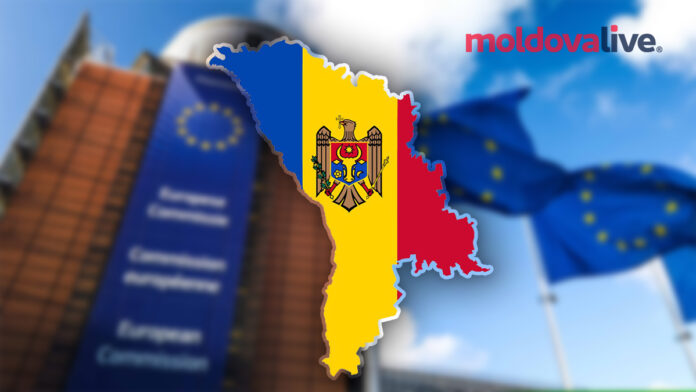The European Commission will recommend, in a report set to be published on November 8th, the initiation of negotiations for the accession of the Republic of Moldova and Ukraine to the EU, according to European sources cited by G4Media. The European Parliament made a similar recommendation for the Republic of Moldova in April, but the final decision regarding the actual start of accession negotiations will be made by the heads of state and government in the European Council.
Both the Republic of Moldova and Ukraine submitted their accession applications to the EU in March 2022, and they were granted the status of candidate countries for the EU.
However, the European Commission will recommend that the initiation of negotiations be conditional on the achievement of significant reforms in both countries. Key areas include justice reform and the establishment of a viable system of checks and balances to prevent any deviation from European values.
With the decision on the Republic of Moldova and Ukraine, the EU will also start discussions on the internal reform of the Union to prevent decision-making processes from getting stuck, which could decrease the competitiveness and political strength of the European bloc.
The European Commission has requested that the Republic of Moldova fulfill nine conditions related to the rule of law as a first step toward opening negotiations:
FOR THE MOST IMPORTANT NEWS, FOLLOW US ON LINKEDIN!
- Completion of the essential stages of the comprehensive justice system reform recently launched in all institutions within the judiciary and prosecution chains to ensure their independence, integrity, efficiency, accountability, and transparency, including through the effective use of asset verification and effective democratic oversight. In particular, the filling of all vacant positions within the Supreme Council of Magistracy and its specialized bodies.
- Remedying the deficiencies identified by OSCE/ODIHR and the Council of Europe/Venice Commission in all these areas.
- Fulfillment of the commitment to combat corruption at all levels through decisive measures in the direction of proactive and efficient investigations and obtaining a credible record of prosecutions and convictions. Substantial increase in the use of the National Anti-Corruption Center’s recommendations.
- Implementation of the commitment to “de-oligarchization” by eliminating the excessive influence of private interests on economic, political, and public life.
- Strengthening the fight against organized crime based on detailed threat assessments, increased cooperation with EU and international regional partners, and better coordination of law enforcement authorities. In particular, the establishment of a legislative package on asset recovery and a comprehensive framework for combating financial crime and money laundering, ensuring compliance with anti-money laundering legislation with the standards of the Financial Action Task Force (FATF).
- Increasing the capacity to carry out reforms and provide quality public services, including by accelerating the implementation of public administration reform; and evaluating and updating the public administration reform strategy.
- Completion of public finance management reform, including improving public procurement at all levels of governance.
- Increasing civil society involvement in decision-making processes at all levels.
- Strengthening the protection of human rights, especially for vulnerable groups, and solidifying commitments to enhance gender equality and combat violence against women.


